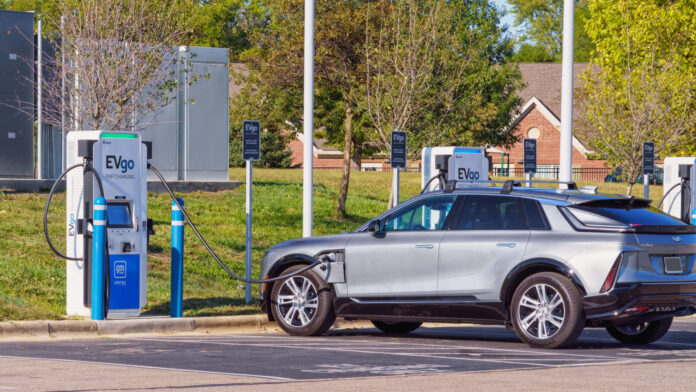Researchers from the University of California, Davis, believe that boosting electric vehicle battery recycling over the next decade will play a crucial role in increasing the supply of minerals, further encouraging the adoption of EVs.
A news release from UC Davis explained that, as more people switch to energy-efficient, planet-friendly EVs, the demand for lithium is expected to skyrocket in the next two decades. In a new study published in Nature Sustainability, the team proposed that opening new mining operations and expanding battery recycling could fulfill that demand.
However, even though EVs are much better for the environment than polluting gas-powered vehicles, mining the minerals required for their batteries and motors still puts strain on the planet (though gas cars are exponentially worse, and advancements in battery technologies have made EVs even greener). The researchers noted that focusing more on battery recycling would likely reduce the need for new mines, leading to lower prices for cars and a significantly lower environmental impact.
Recycling lithium batteries also leads to a cleaner planet by keeping harmful metals and toxins from leaching into the soil and groundwater when they’re discarded in landfills. The improper disposal of lithium-ion batteries also contributes to the growing problem of e-waste, which poses risks to human health as it exposes workers to dangerous chemicals such as dioxins, lead, and mercury, per the World Health Organization.
To sum things up, recycling batteries comes with numerous benefits and makes manufacturing EVs much more efficient. UC Davis stated that while lithium concentrations are still widespread, there are only a handful of mines providing society’s supply, driving the urgent need for more lithium as demand rises.
Opening new mines seems like an obvious way to extract more lithium, but getting government approval and raising funds for production can be a lengthy and expensive process.
“It’s not just about having enough lithium, it’s how fast you can extract it,” Pablo Busch, a Ph.D. candidate at UC Davis and co-author of the study, said. “Any supply disruption will slow down electric vehicle adoption, reducing mobility access and extending the operation of combustion engine vehicles and their associated carbon emissions.”
The authors explained that at least 15 new lithium mines will be required to meet demand by 2050, and government policies that encourage widespread recycling can help minimize the need to open additional mines.
“Recycling is really important for geopolitical and environmental reasons,” Alissa Kendall, professor of environmental engineering at UC Davis and senior author on the paper, said. “If you can meet a small percentage of demand with recycling, it can have a big impact on the need for new mines.”
In addition, as electric cars become more efficient and public EV charging infrastructure expands, it could encourage the use of smaller batteries and put less strain on global lithium demand.
These best-sellers from Quince deliver affordable, sustainable luxury for all
Improving EV battery recycling rates could boost the adoption of electric cars, especially if it has a big impact on vehicle prices. As more people switch to EVs, both individuals and the planet will benefit from reduced tailpipe pollution from gas cars and improved air quality, especially in areas near busy highways and industrial zones.
Join our free newsletter for weekly updates on the latest innovations improving our lives and shaping our future, and don’t miss this cool list of easy ways to help yourself while helping the planet.


